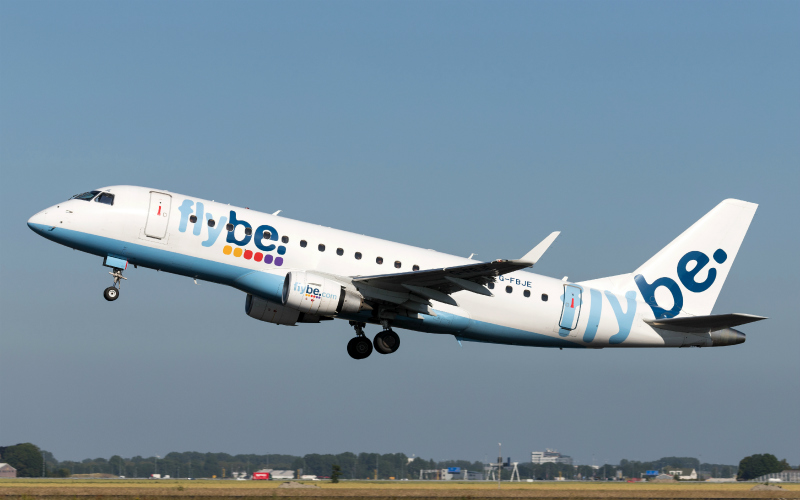
Flybe isn’t exactly like other airlines. It was founded in 1979 with the idea of connecting the island of Jersey to major airports within the UK and the company has grown throughout 40 years to provide a vital service to many of the UK’s rural or more distant communities and it is these communities who would have been most concerned at the news of the Flybe’s recent financial woes.
There will be significant relief amongst regional and island communities today at the news that the government has provided direct relief to Flybe to allow it to continue to fly.
The government refusal to disclose the precise details of what has been agreed (although we can be certain it includes some forbearance in relation to paying Air Passenger Duty and a commitment to look at it’s overall reduction on domestic flights) has fuelled a not entirely unexpected response from the industry and environmental campaigners. Whilst regional communities served by Flybe might be relieved, the overwhelming feeling this morning at other airlines, and in particular British Airways, was fury.
Even though, any promised reduction in Air Passenger Duty, will have to be applied to all airlines, but even the promise of that was not enough to mollify Willie Walsh.
Willie Walsh, the outgoing chief executive at BA has not minced his words accusing the government of using tax payer funds to subsidise a company whose main shareholders include Virgin Atlantic which is owned by Delta Airlines, one of the most profitable airlines in the world.
His point that it’s unfair that taxpayers have to take on the burden of assisting a privately owned company, (owned by successful solvent entities at that), is hard to argue with, especially if you were affected by Thomas Cook’s recent demise, where the Government choose not to step in, resulting in significant cost and upset in repatriating travellers and supporting the workforce through job losses.
It is undoubtedly a political decision which was made to support specific manifesto commitments by the Conservatives in the run up to the election – but – is it really the right thing to do and does Willie Walsh have a point? Should the tax payers (and arguably the environment) pay to keep Flybe in the sky and is this a move away from the government’s pre-election position of allowing the market to determine private companies’ fate?
The environmental impact of lowering APD across the industry and the expected reduction of funds available to schemes promoting climate change initiatives could be severely impacted. It is hard to take seriously the warm political words committing to averting a “climate emergency” when, on the face of it, they commit to supporting a scheme which makes flying cheaper.
I’ve also seen some discussion that the Government was forced to look at APD because pre-Brexit and before the end of the transition period, State-Aid rules prohibit direct assistance, but this is not entirely true, given that State Aid can be granted to support regional economic development, which is the entire reason for supporting Flybe. In any event, post-Brexit, the proposed State Aid Regulations 2019, which have not yet been enacted, effectively propose to cut and paste the current EU regulations into UK law.
Make no mistake, this was a political decision, and the government have weighed their commitment to letting the market regulate the financial viability of private companies (even if the shareholders are solvent), and the impact on their environmental commitments with balancing a public good in keeping Flybe connecting communities.
It is hard to argue, in my view, when faced with depriving communities of a vital economic and social link, that the Government have not made the right decision, but, it will be interesting in days to come to see how they manage the impact of their choices on their environmental commitment and the fall out from other airlines’ criticism.
Pamela Muir is a Partner in our Corporate team. We are always delighted to talk without obligation about whether we might meet your needs in insolvency and restructuring. Call Pamela on 0131 226 6541 or email pmuir@thorntons-law.co.uk
